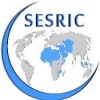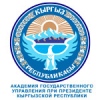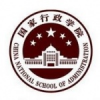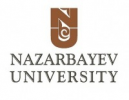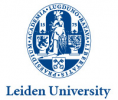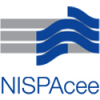Provisions of the Regional Hub of Civil Service in Astana
![]()
- Legal basis for establishment
- On 15 March 2013, 25 countries endorsed a Declaration to create the Regional Hub of Civil Service during the Founding Conference.
- Forms of participation
- Participation and partnership in the Regional Hub is voluntary.
- Any country that has expressed an interest in participating in the work of the Regional Hub and endorsed the Declaration of establishing the Regional Hub dated 15 March 2013 is eligible to be a participating country of the Regional Hub.
- An organisation, an institution or a university that has a legal and organisational form of non-state nature and has expressed its interest in participating in the Regional Hub may become a partner.
- Responsibilities of participating countries and partners
- Participating countries and partners are expected to take an active role in the Regional Hub’s activities and initiatives, supporting working groups with available academic material and resources;
- Participating countries are expected to send their representatives to conferences and training courses organised within the framework of the Regional Hub.
- Financial participation
- The Regional Hub’s operations will be, initially, funded jointly by the Government of Kazakhstan and the UNDP, for the period 2013-2017.
- Further types of financial participation could be proposed:
- Annual membership fees;
- Voluntary contributions on an ad hoc basis with/without any
- Donor contributions to Hub activities.
- Functions of the Regional Hub
- To serve as a multilateral platform and institutional network for the continuous exchange of experience and knowledge in the sphere of civil service (Partnership and Networking);
- To stimulate the improvement of civil services in the region, through training and conferences on particular issues (Training and Experience Exchange); and
- To join the efforts of academia and research centres in the comparative study of strategic issues (Knowledge Management).
- Structure of the Regional Hub
The initial institutional structure will be supported by a Provisional Steering Committee and a Secretariat hosted in Astana, Kazakhstan.
- The Provisional Steering Committee will be the main coordination mechanism of the Regional Hub, comprising of representatives of civil service related bodies, public administration institutions and foreign embassies from Hub’s participating countries and partners.
- For the first composition of the Provisional Steering Committee, ACSA and UNDP will invite individually the members of the Provisional Steering Committee.
- Partners of the Hub may be invited to participate in the Provisional Steering Committee discussions by ACSA and UNDP on a case-by-case basis, when such participation contributes to the objectives of particular activities and the general objectives of the Hub.
- Provisional Steering Committee members should be high-level/senior government/academic representatives who are knowledgeable regarding the civil service system of their home country.
- A joint Provisional Steering Committee meeting should be held every six months; for its decisions to carry, at least 2/3 of its members must be present.
- The functions of the Provisional Steering Committee are as follows:
- Approve general guidelines and strategic directions for the Regional Hub;
- Identifying training needs for civil servants and research directions, following advice from participatingcountries;
- Approve and evaluate the annual action plan, prepared by the Secretariat in consultation withparticipating countries;
- Assess the overall annual activity of the Regional Hub;
- Assess the activities of the Secretariat of the Regional Hub;
- Decide on the future expansion of participation and activities of the Regional Hub;
- Establish contacts with countries outside of the Regional Hub and with international organisations; and
- Approve creation of the working units.
- The Secretariat is the main working body of the Hub, responsible for its daily operations. Its functions are as follows:
- Organisation of activities within the establishment and institutional development of the Regional Hub (further, the Hub);
- Responsibility for managing consultants, procurement, monitoring expenditure and overall administration of human and financial resources;
- Mobilisation of resources from donors and international organisations;
- Organization of the Provisional Steering Committee activities and meetings (inviting stakeholders to delegate representatives);
- Arrange Provisional Steering Committee meetings;
- Organisation of round tables, international conferences and all events relating to the Hub;
- Develop and executing the Hub’s action plan;
- Ensure coordinated participation of all national and international stakeholders across all phases of planning and implementation, including cohesion between the activities of working units;
- Develop and maintain strong partnerships, including with involved ministries and agencies and other government departments, civil society and other international agencies;
- Promote and disseminate information about Hub activity;
- Three working units would be created based on the functions of the Regional Hub (this will be submitted for the Provisional Steering Committee decision). The working units would be virtual entities comprised of representatives of civil service agencies and/or educational and academic institutions of the public administration of participating countries and partners to execute the functions of the Regional Hub.
×





